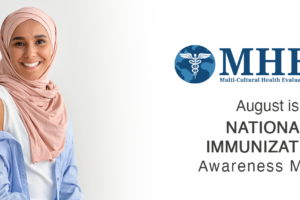Learn more about Autism and bring awareness to help identify it early in children.

Autism is a complex brain disorder that often inhibits a person’s ability to communicate, respond to surroundings, and form relationships with others. Also called autism spectrum disorder (ASD), Autism refers to a broad range of conditions characterized by challenges with social skills, repetitive behaviors, speech, and nonverbal communication. ASD now includes conditions that used to be diagnosed separately. These include Autism, Asperger’s syndrome, pervasive developmental disorder, and childhood disintegrative disorder.
What should I know about ASD?
According to the Centers for Disease Control, Autism affects an estimated 1 in 44 children in the United States today. Symptoms usually are noticed by the time a child is two years old. The exact cause of ASD is not known. ASD tends to run in families and occurs more often in people with certain genetic conditions such as fragile X syndrome and tuberous sclerosis.
The risk of having a baby with ASD is higher if the birth parent is older, has another child who has Autism, or has a family history of learning problems. Each person with Autism has a distinct set of strengths and challenges, as ASD can range from mild to severe. Some people with ASD may require significant support in their daily lives. In contrast, others may need less help and, in some cases, live entirely independently.
Others may develop social and verbal skills and lead independent lives as adults.
How can I get help if I believe my child has ASD?
Educate yourself about ASD. As a parent, you know your child best and are their best advocate. If you are concerned, share your observations with your doctor. Well-child visits are essential, as screening questions are usually asked at the 18-month and 24-month timeframe. Diagnosing ASD involves a combination of screening questions, assessments, and evaluation of the way a child behaves and interacts with others.
Learning all you can about ASD can help you know how to help your child develop independence. Treating ASD early gives you the tools and support to help your child lead the best life possible! Speak to a MHEDS healthcare provider today!
Want to get a headstart on your health? Call MHEDS at 814-453-6229 (Peach Street) or 814-616-7730 (John F. Kennedy Center).
Our health information does not replace the advice of a doctor. Please be advised that this information is made available to assist the public in learning more about their health. MHEDS providers may not see or treat all topics found herein.








